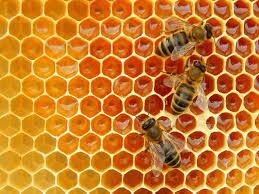Lorenza Medely
Worker bees in their hive.
Photo courtesy of The Conversation
Honey bees are on campus, bee prepared
UNC Charlotte’s Dining Services, Biology, and Geography and Earth Sciences departments collaborated to introduce two honey bee colonies to campus.
UNC Charlotte installed two new honey bee colonies between the South Village Deck and University City Blvd.
According to a tweet by UNC Charlotte, the colony will promote pollination on campus and hands-on learning of bee behavior. The new bee colonies were started by Lindsay Klingschmidt, the nutrition and sustainability specialist at UNC Charlotte Dining Facilities.
Klingschmidt plans to use the honey from the bees for catered events, coffee shops and the teaching kitchens she hosts with Natalie Holzhauer, the dining services dietician. “This year, we will probably not get honey,” she said. However, once the bees have gathered all the resources they need to build honeycombs and build their colony, they will start producing honey.
Klingschmidt would like to partner with student groups or classes on campus to study the bees. “We were out to visit the bees in the bee yard in the middle of the last month, so they were able to see how the colony of bees and all the worker bees actually provide,” she said.
Dr. Stan Schneider, professor of biology at UNC Charlotte, has been studying honey bee behaviors, specifically the African honey bee or the “killer bee,” since 1980. He has been teaching at UNC Charlotte for close to 37 years.
“Honey bees have one of the most complex communication networks of any non-human animal,” Schneider said. They have pheromonal and tactile communication signals. The most commonly known tactile communication signal is the waggle dance honey bees do to communicate the location of resources. His lab has also studied the vibration signal that honey bees use in almost everything they do.
Honey bees also have complex yet organized societal structures. Their societies are completely egalitarian and are female-dominated. Everyone in the colony has a job, and all decisions are making collectively by the worker bees. “The decision of what a colony is going to do just emerges from these thousands of interactions of workers, but there’s no centralized control of any of that decision-making,” he said.
According to Klingschmidt, the bees are fascinating to watch. One thing she finds interesting about the honey bees is how they collect pollen. “They have little baskets on the outside of their legs, and it’s how they collect pollen to bring it back to the hive,” she said. She enjoys watching videos of worker bees collecting pollen because “it’s crazy to watch.”
Klingschmidt would eventually like to host people at the bee yard as long as they sign a waiver for safety purposes. She encourages any students or student groups with any questions or are interested in seeing the bees to reach out. Students can also find pictures of the colonies on the @niner_eatwell Instagram page.
https://www.ninertimes.com/featured/honey-bees-are-coming-to-campus-bee-prepared/article_0c4e666c-cb97-11eb-a833-d711e38cb91e.html







